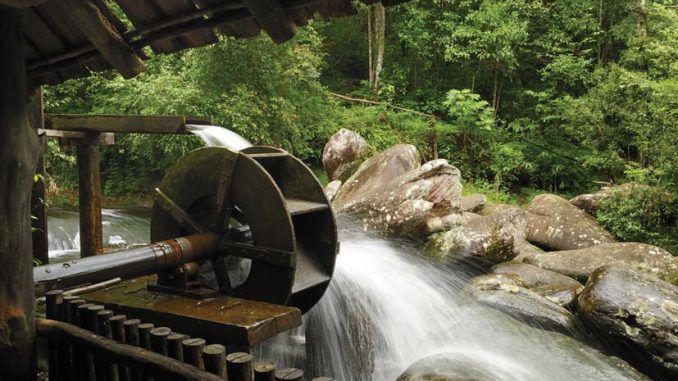
While many companies have been jumping onto the solar bandwagon to earn high returns and position themselves as socially conscious enterprises, Virtuaal Infrapower, a Dehradun-based infrastructure company with a background in the retail industry, has shown keen interest in developing small-hydro projects. The company has licences to develop 38 MW of small-hydro power (SHP) projects in Arunachal Pradesh and aims to take that number up to 300 MW over the next two years.
Virtuaal Infrapower was set up in 2012 by the promoters of Virtuaal Retail. The promoters ran a successful retail business across north India. However, owing to increased competition from e-commerce companies, its brick-and-mortar retail business took a hit. The promoters, therefore, began to explore other sectors and after due diligence, decided to foray into the SHP segment. “We decided on small-hydro projects because they have good plant load factors (PLFs). We studied Arunachal Pradesh, Himachal Pradesh, Uttarakhand and Sikkim, and narrowed down to some projects in Arunachal Pradesh, which we felt were viable,” says Vikram Aggarwal, director, Virtuaal Infrapower.
The company is currently developing two projects in Arunachal Pradesh. The first is located at Pareng and has a capacity of 14.5 MW. It is being developed at an estimated cost of Rs 1.62 billion. The second is the 23 MW Keyi project, which is located in Lower Subansiri district of the state and entails an investment of around Rs 2.42 billion. Clearances for both the projects are in place and pre-construction works at both the sites have begun. The company has signed a power purchase agreement with the Assam discom as the projects are close to the state’s border. Both the projects are expected to be completed by mid-2019. While actual construction will take only about two and a half years, getting all clearances has taken around four years. However, Aggarwal is of the view that this is the case with all SHP projects and does not see it as a big challenge.
In addition, equity for the projects is in place and the company is working towards financial closure, which it expects to achieve during the current financial year. The company is expecting to earn a return of about 13 per cent on these two projects. Given that it is more or less consistent over a 35-year tariff plan, the return expectations are reasonable. Virtuaal’s overall plan is to develop SHP projects, hold them for a long time and build value for the company.
While the country’s SHP segment has seen limited growth in the past few years, the scenario could change given the capacity proposed to be added in Arunachal Pradesh. In June 2016, NITI Aayog, the government’s policy think tank, proposed to promote the development of 100 MW of SHP projects in the state. Virtuaal Infrapower stands to benefit from such plans, as there are not many SHP developers active in the state.
The company is firm on its small-hydro plans and believes it offers many advantages as compared to large hydro or even other renewable energy sources like solar. One key advantage of small hydro over large hydro is that the former helps obligated entities fulfil their renewable purchase obligations. As such, developers readily find buyers for the power generated from SHP plants. Moreover, SHP projects get subsidy support from the Ministry of New and Renewable Energy and are exempt from environment impact assessment studies, which can be a challenge for larger projects.
As for solar, Aggarwal is not upbeat about the segment. He is of the view that the solar tariffs today are not very encouraging from a developer’s perspective. Also, the PLFs of solar plants are quite low as compared to small hydro. Besides, solar has its own challenges such as large land requirements for ramping up capacity.
As such, Virtuaal plans to focus primarily on the SHP segment. “We continue to apply for more licences, look for more opportunities in small hydro, and expand through acquisition,” says Aggarwal. While the SHP segment in India has been continuously underperforming, Virtuaal Infrapower has big plans for the segment. However, it remains to be seen whether the company will be able to tide over the challenges in the segment and remain committed to developing SHP projects in the future.


